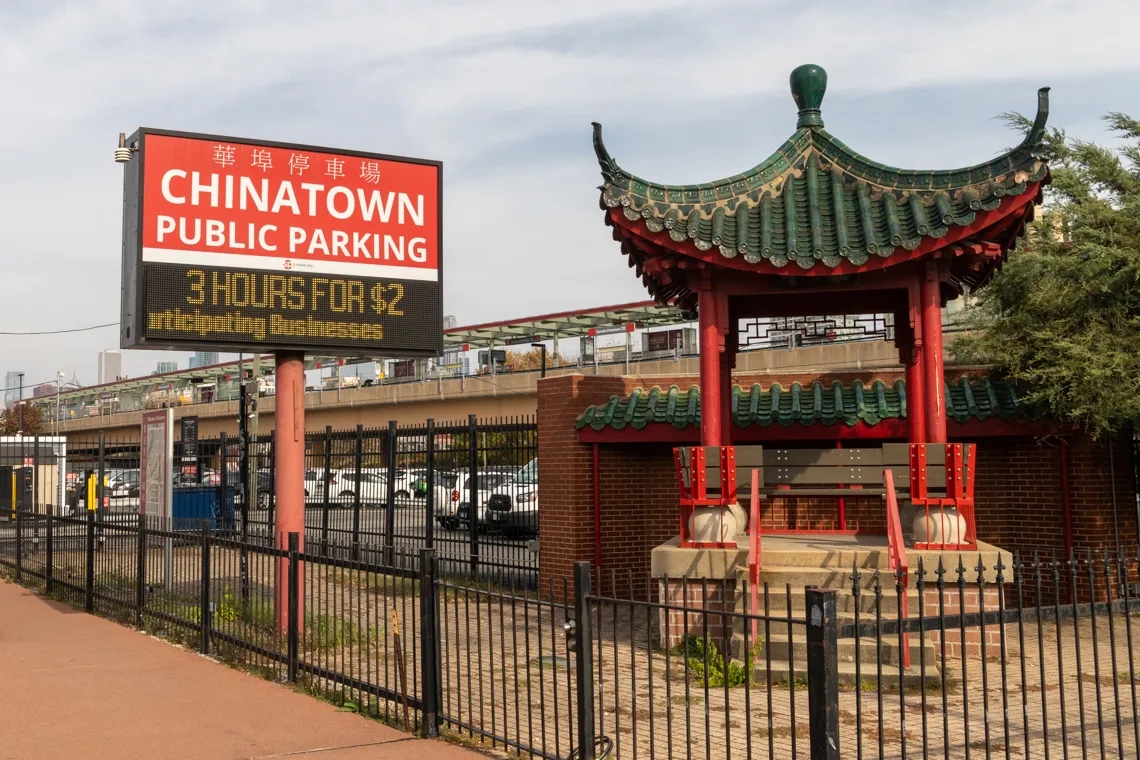‘There’s something fishy here, don’t you think?’: Wiretapped calls detail Madigan confidant’s confoundment over complicated land deal

CHICAGO – It was the last day of the General Assembly’s spring legislative session in 2018 when veteran Statehouse lobbyist Mike McClain realized his bill wasn’t going anywhere.
McClain was officially retired but still took on “assignments” from his longtime friend Illinois House Speaker Michael Madigan. But one particular project he took on proved especially difficult.
In the fall of 2017, he began working with then-Chicago Ald. Danny Solis on what was supposed to be a relatively simple legislative maneuver to transfer state-owned land to the city of Chicago.
For years, the state had leased the land out to a company that operated it as a parking lot in Chicago’s Chinatown neighborhood. Solis wanted the state to transfer the parcel to the city, which would then sell it to a real estate developer interested in building a mixed-use apartment complex. That sliver of Chinatown was in Solis’ 25th Ward.
When Solis met with McClain about the proposal in late 2017, Solis agreed with McClain’s characterization that it was a “legacy” project after the alderman revealed he may not run for city council again in 2019 after two decades on the city council.
McClain also recruited Nancy Kimme, a relatively new lobbyist, to work with then-Republican Gov. Bruce Rauner’s administration on the effort. Kimme spent years in GOP circles and served as chief of staff to the late Judy Baar Topinka when Topinka was both comptroller and state treasurer. McClain also involved Kimme to reduce the risk of upsetting the deal if Rauner – Madigan’s political nemesis – found out the speaker had any ties to the project.
But the team of statehouse veterans couldn’t get the routine land transfer done, even after six months of work. They were confounded by how the deal had become such a boondoggle. Even six years later, Kimme still expressed a bit of that bewilderment Thursday as she testified about the yearlong effort in Madigan’s federal corruption trial.
Kimme’s appearance on the witness stand came at the conclusion of the seventh week of testimony in the trial. McClain was indicted alongside Madigan in the case that extends to allegations of bribery involving McClain’s biggest client, electric utility Commonwealth Edison, and AT&T Illinois. Madigan and McClain are accused of running a “criminal enterprise” benefiting the speaker and his inner circle – the basis of racketeering charges against them.
Kimme and McClain had relied on Solis’ assurances that state Rep. Theresa Mah, who represented Chinatown, supported the project. But when Kimme finally approached her in mid-May 2018, she said she was opposed.
“She’s like, ‘This is a scam cooked up by Danny Solis. You know, people in my district don’t like him,’” Kimme told McClain, relaying the meeting in a May 16, 2018, phone call. “They’re trying to gentrify Chinatown and take away its identity and put some big high-rise up in the middle.”
They’d also been unable to get state Sen. Marty Sandoval to “calm down” after he’d intervened, making his opposition known to the head of the Illinois Department of Transportation. They’d tried to placate him by dispatching state Sen. Tony Munoz to help their cause. They brought Munoz on board by combining another land transfer Munoz wanted into the same bill with the Chinatown transfer.
But it hadn’t worked; in fact, the day before session ended, Kimme had gotten wind that Sandoval, who chaired the Senate’s Transportation Committee, had escalated his opposition to threatening IDOT Secretary Randy Blankenhorn.
“There’s something fishy here, don’t you think?” McClain asked Kimme as they puzzled over the events of the last several weeks. “I mean, Solis says Theresa Mah’s all in. Then you find out Theresa Mah’s not in. You know, Tony Munoz’s supposed to be in charge of Sandoval, and we find out, can’t do anything with Sandoval.”
McClain was, as it turned out, at least half-correct in his suspicions, though he never imagined Solis had secretly been working as an FBI cooperator for nearly two years at that point.
Solis, who chaired the city council’s influential Zoning Committee, had become friendly with Madigan the previous summer after the speaker called him out of the blue asking about a proposed apartment complex project in Chicago’s booming West Loop neighborhood.
Both he and the FBI agent who’d been overseeing the feds’ still-unfolding corruption probe, which began in 2014, confirmed that it wasn’t until Madigan’s June 2017 call to Solis that the investigation shifted focus to the powerful speaker.
Solis offered to introduce Madigan to the developers so the speaker’s law firm could pitch its property tax appeals services. After the alderman brought the developers to a meeting at Madigan’s law firm the next month, the two debriefed in the speaker’s private office. That’s when Solis brought up the Chinatown project.
Prosecutors allege Madigan engaged in a bribe when he agreed to help Solis get the land transfer in exchange for the would-be developers engaging Madigan’s law firm.

A parking lot in the heart of Chicago’s Chinatown neighborhood. Federal prosecutors allege former Illinois House Speaker Michael Madigan pushed for a land transfer in order for developers to build on the parking lot so he could eventually get the development’s property tax appeals work for his real estate law firm. (Capitol News Illinois photo by Andrew Adams)
But in secretly recorded videos and wiretapped phone conversations shown to the jury while Solis was on the witness stand last week, McClain knew of Solis’ intent months before Madigan did.
“So in the past I have been able to steer some work to Mike,” Solis said in his first meeting with McClain in November 2017. “And these guys will do the same thing.”
It wasn’t until late March 2018 that Solis explicitly told Madigan the Chinatown developers would give him their property tax business.
After a sit-down with another real estate developer Solis brought to Madigan’s office for a pitch meeting, Solis brought up the ongoing Chinatown project. He told the speaker, “they’ll work with you on property taxes.” In a follow-up call on the previous day’s meeting on March 27, 2018, Solis again mentioned the Chinatown project.
“If you can take care of that matter in May, I’m confident they’ll appreciate it and sign you up after May,” Solis said.
But there was no resolution to the issue in May. Just a few minutes after McClain hung up with Kimme on that last day of session, he spoke with Madigan and explained the “hurdle after hurdle” on the bill. In addition to unexpected opposition from Mah, McClain surmised that Sandoval’s interference had spooked Blankenhorn into an intractable position.
“Yeah, sure, alright,” Madigan told McClain. “I mean, put the file in the drawer for a while.”
The upcoming November 2018 election was likely to spell good news for the effort, Kimme explained, as it appeared that Rauner would lose. That meant the IDOT secretary he appointed would be out of a job – and out of their way.
In a series of wiretapped calls made in the weeks leading up to the election and lawmakers’ fall veto session scheduled shortly thereafter, those involved strategized on how to get the bill passed before the end of the General Assembly’s adjournment in late November of that year.
But despite last-minute negotiations on who could carry the legislation, the amendment to transfer the land to the city never passed even “after all of that,” Kimme testified Thursday.
Business leaders in Chinatown – even those who initially supported the project – had registered their opposition with a petition drive in the fall of 2018. After they collected some 3,000 signatures, then-Secretary of State Jesse White threw his weight behind them, which Kimme testified sealed the deal on the bill’s death.
Under questioning by Madigan attorney Tom Breen, Kimme said figuring out what she’d referred to in one wiretapped call as a “crazy parking lot disaster” had become “my Rubik’s cube.”
“Did you find it undoable?” Breen asked.
“I did,” Kimme replied.
“And that was because of miscommunication and bad information and petty politics?” Breen asked.
Prosecutors objected to Breen’s question, along with his insinuation a minute later that the situation was impossible as she’d been trying to follow “a script written by” the FBI.
The comment harkened back to cross-examination of FBI Special Agent Ryan McDonald last month when Madigan attorney Dan Collins accused the FBI of creating a trap just to see if the speaker would fall into it.
“Just as you directed Solis to say false things to Madigan, the same is true of other folks,” Breen said to McDonald, citing the involvement of McClain and Kimme in the unsuccessful Chinatown land transfer. “So you know that after Danny Solis told false information to Nancy Kimme, she talked to Mike McClain about it.”
“Yes,” McDonald replied.
“That false information – it spreads, right?” Collins asked.
“I don’t know,” McDonald said.
This article first appeared on Capitol News Illinois and is republished here under a Creative Commons license.
Miss Clipping Out Stories to Save for Later?
Click the Purchase Story button below to order a print of this story. We will print it for you on matte photo paper to keep forever.

